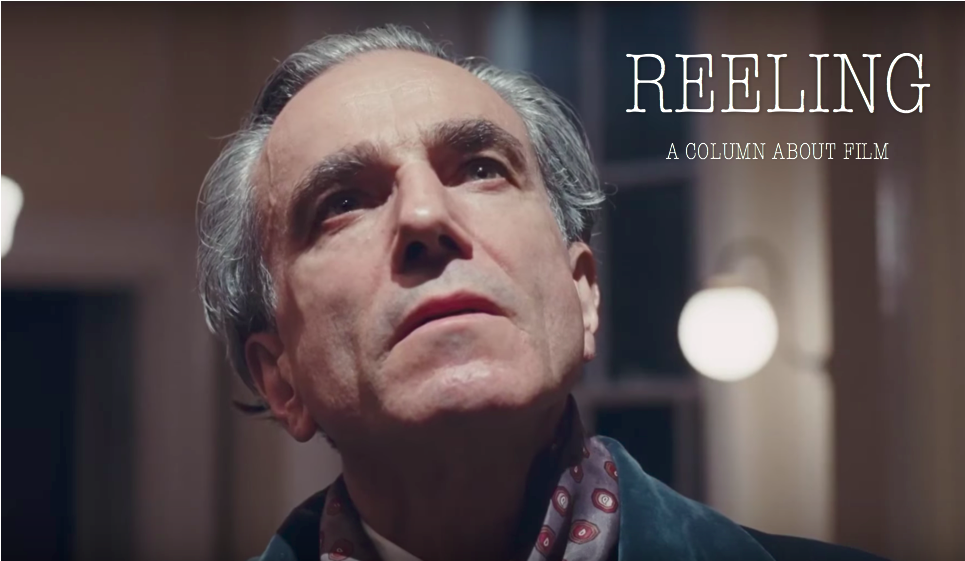
George Orwell had rules for writing, which included the rule that, when para-phrased, said that you shouldn’t use metaphors and expressions that you are used to seeing in print. Metaphors that have become familiar lose their impact if used too much. And yet, to call Daniel Day-Lewis chameleonic is perhaps only appropriate because no other word will do. Many have remarked on his use of voice as the lone key to his success, but I disagree. It’s true, the gruff, quasi-sophisticated growl of Daniel Plainview is far removed from the thin, silky purr of Reynolds Woodcock. But for me, it’s far more about the soul.
To inhabit the soul of a character is rare for any actor of any calibre. Sometimes it’s down to luck. Though I doubt anyone could imagine Casablanca‘s Rick Blaine being given life by someone other than Humphrey Bogart, it’s only by the virtue of Bogart and Blaine being one and the same that it manages to be a soul-inhabiting performance. The other few times this has happened through merit rather than luck include Adam Driver in Paterson, the three leads in Moonlight, Frances McDormand in Fargo and Iréne Jacob in Three Colours: Red. But it’s Daniel Day-Lewis who has mastered this skill, so well that it actually takes some reminding that all his characters stem from the same sunken, stretched face.
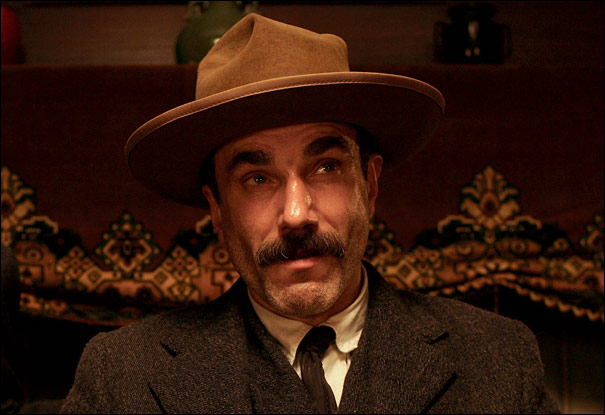
In There Will Be Blood, Paul Thomas Anderson constantly brings us back to that face. It degenerates and almost decomposes onscreen in front of us, as Daniel Plainview slips deeper and deeper into madness. Day-Lewis, of course, doesn’t overplay it. First it’s a widening of the eyes. Then it’s a clenching of the teeth. One eye begins to droop a little, as the other gets even wider with obsession and paranoia. The mouth begins to move a lot more, stretching into contorted shapes. The degeneration feels singular, though. It’s a different person, a different mind, between the first frames and the last, but the soul is the same. It’s the soul of Daniel Plainview, as played by Daniel Day-Lewis.
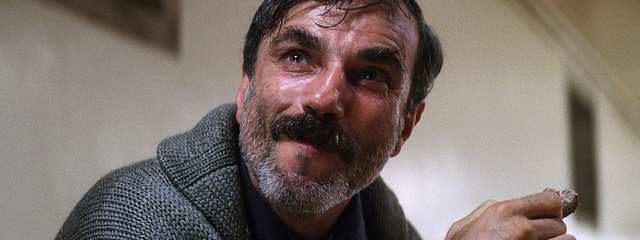
The actor’s choice to then work with Steven Spielberg has always struck me as odd. Whereas Anderson is a genuine American auteur, Spielberg is a populist filmmaker. Lincoln is a fine film, but not of the same operatic lifeblood as There Will Be Blood or Phantom Thread, the two films in his career that book-end Spielberg’s historical drama. But clearly the actor had a tactic in mind from the start. Spielberg had already written a script that was far more interested in Lincoln’s character than any of the things he did, but Day-Lewis was the one that actually made it work.
Neither I nor anyone else currently living has ever heard what Abraham Lincoln actually sounded like. But such is the confidence with which Day-Lewis approaches the role, imbuing the great President with a wisened, old-age American voice and the same sense of opera to be found in his performance as Plainview, that by the time the film has ended you feel as though you have no reason to doubt that this is exactly what Lincoln looked like, sounded like, and felt like.
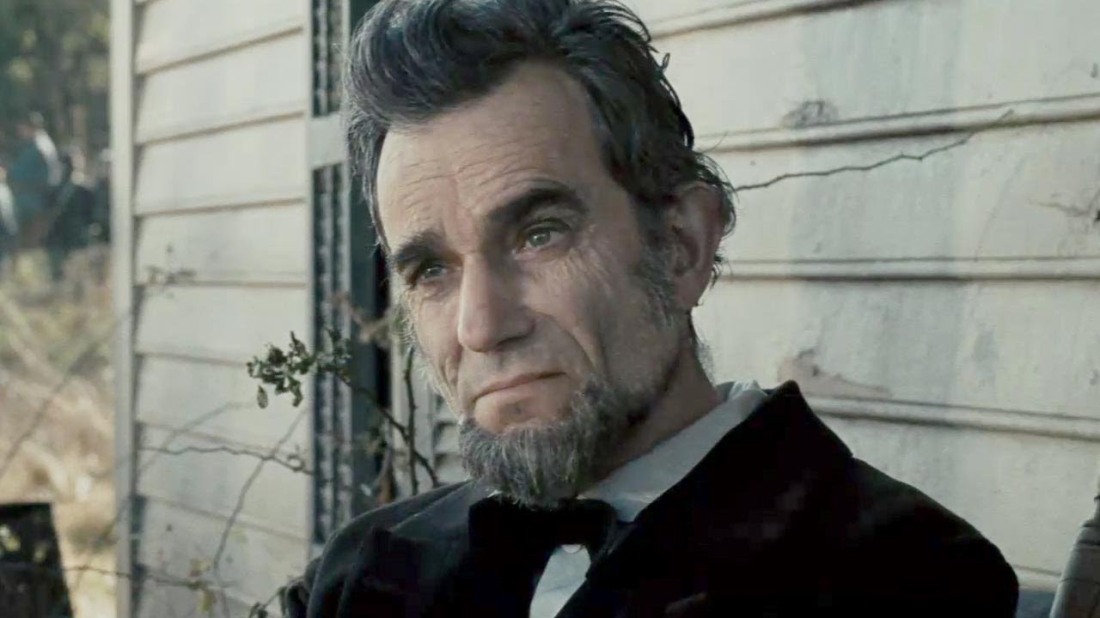
Probably the closest he has come in recent years to playing someone in any way physically close to himself is Reynolds Woodcock in Phantom Thread. Supposedly his final role, though many remain optimistic that he could return to the camera one last time, it’s one of far more restraint that Plainview and Lincoln. This may partly be because the film is not entirely his, whereas Blood and Lincoln are very much that. Here, he is a ghoulish master to the plucky outsider, almost a Beast to Vicky Krieps’ challenging, resistant Beauty.
Woodcock’s voice, though far more clipped and enunciated than Day-Lewis’, is tonally similar. It’s extraordinarily British, and much higher than Plainview’s snarl. Physically, the role is far less strenuous as well. Woodcock is a mid-century aristocrat, but not as pompous as the more cartoonish portrayals of aristocracy in film. He simply walks with fluidity and poise, with purpose but no aggressive conviction. Indeed, the entire film is a game of passive-aggressiveness, and so outward contrition simply wouldn’t do.
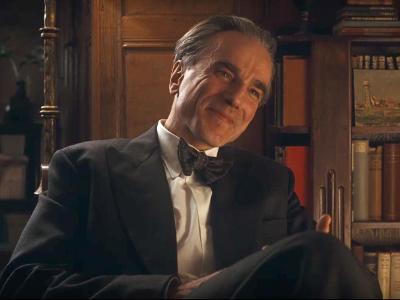
In each case, you absolutely believe that this person is exactly how they are on screen. Place them next to each other, and there seems to be little similarity from one to the other. They are equally as fully-formed, and all characters of undefinable magnificence in their own right. One is a walking Shakespearean tragedy; another is a figure of enormous historical importance; another still an intensely flawed genius. That their souls are all different, and noticeably so, is the lasting achievement of Daniel Day-Lewis, one of the finest actors to ever live. If this is the end for him, he has left quite the legacy for us.
I have one last Best Picture nominee left to see: Lady Bird comes out in the UK a week on Friday, and it feels like a nice one to finish with. I’ve seen the trailer a few times this past week or so, and every time I watch it, I find myself inadvertently seeing my own mother and sister on the screen. If the entire film resonates with me as much as a two-minute trailer does, it should be a knockout.
It’s amazing to see the impact that Black Panther is having on the world before it is even released. It’s not just an excitement felt in black communities: it’s the sense of a moment, one that they’re elated to be able to witness. A superhero that looks like them is one thing; but a film that has wholly taken on a vast and rich culture hardly ever explored in blockbuster cinema before? It’s extraordinary.
It is also, perhaps, the defining argument as to why representation matters. If the film is as invigorating as the trailers suggest, whilst also being as defiantly Black as it is all-but-confirmed to be, the result may be a greater freedom of expression in mainstream culture for black people, by black people. I’ll write more on this subject next week, but it’s struck me a lot recently as to the wave of excitement that Black Panther will be riding in on.